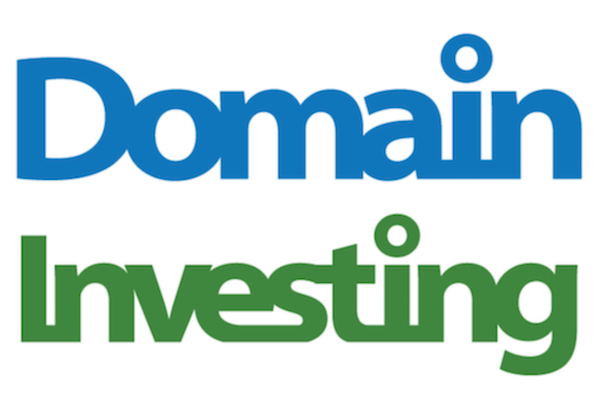
Melbet App Guide – How to download apk for Android and iOS
November 10, 2021
NBA 2K22 Error Code 727e66ac: How to Fix, Server Status & more – RealSport101
November 11, 2021You can avoid spam calls by opting out of WHOIS or reporting them to your phone service provider. However, these measures are not effective enough to avoid robocalls. If you do get spam calls, it is best to contact the phone company and report it to the ICANN. Also, you should be aware of the rules that apply to domain registrations in ICANN. For instance, you can’t register a domain if you’ve had a previous name.
Avoiding incorrect information
When it comes to protecting your identity, you must do everything possible to avoid spam calls tied to your domain registrations. One way to prevent spam calls is by ensuring that you have an authentic email address linked to your domain. Incorrect email address can lead to domain lock and seizure. Similarly, never use a throwaway email address with multiple domains. In this case, someone can get hold of your email address and hijack your domain.
The reason why a domain name is registered is to establish an online presence. By using it, you can connect with potential customers and build a website. However, this can lead to unwanted guests. If you don’t want spam to interrupt your productive work, ensure that your domain registrar doesn’t sell your personal information to spammers. You should also make sure that your domain registration is legitimate. Whois keeps your personal information in a public library called WHOIS.
Related Article: Safe Building Compliance and Technology v Michelle Bernholtz
Opting out of WHOIS
Is there a way to prevent spam calls tied to domain registrations? If the answer is yes, then you can opt out of the WHOIS database. Spammers use the WHOIS database to collect leads. You can also block specific IP addresses from receiving spam calls. But is it really possible to opt out? Let’s discuss the details below. It’s simple: To opt out of WHOIS, you need to have your domain registered with a specific registrar.
If your domain registration is not commercial, you can opt out of WHOIS for that particular domain. However, this method is not a universal solution. Depending on how you use your domain, your information could still be visible on other websites. One of the best ways to prevent these kinds of calls is to install Domain Privacy, also known as WHOIS privacy. This service protects your personal information in the WHOIS directory.
Another way to prevent spam calls is to opt out of WHOIS for your domain. Although it’s not as effective as blocking WHOIS, opting out of WHOIS can help you keep your privacy. This means that your personal information won’t be shared with spammers, but it will help keep you safe from scammers. As a result, spammers can’t use your personal information to track down your personal details. You can also opt out of WHOIS by choosing a different hosting provider. Most hosting companies offer domain privacy services at a reasonable fee. However, it’s worth noting that the service still stores this information in the WHOIS.
Reporting spam calls to your phone provider
The first step in combating unwanted phone calls is to report these numbers to your phone provider. You can also report spoofed phone numbers to the FTC. This organization has tools to track down scammers by analyzing call data and trends. By reporting spoofed calls, you’ll be able to screen these calls and keep them from coming through your phone line. By reporting the spammers, you’ll also help law enforcement track down the scammers.
Many Android phones have built-in features to report spam calls. For example, Google Pixel phones turn red when a spammer calls. To report these calls, tap on the three dots in the upper-right corner of the Phone app and select Settings. Go to the Caller ID & spam section. From here, you can choose to block specific calls and text messages. You can also block these calls by installing call blockers.
To prevent robocalls, make sure you have a password for your voice mail account. Some voicemail services allow customers to check their voice mail from their own phone number. If this is the case, it’s important to remember to change your password for your voicemail to protect yourself. You can also use a mobile app to block robocalls. YouMail also offers free blocking apps to postpaid customers. The Scam Shield feature helps to identify spam calls and offers a virtual proxy phone number. If you’re on a cell phone, you can change your regular T-Mobile number once a year.
If you receive robocalls from a generic sounding organization, they are most likely spam. These calls are not allowed to contain any type of sales pitch. They can’t be purely informational and are likely a scam. If you find that a caller knows your name or claims to represent a pre-existing relationship, report the call. If you’re not sure about a caller’s identity, report it to your phone provider.
ICANN rules on domain registrations
ICANN is an organization that manages domain names. It is made up of various groups that represent different interests on the Internet. The rules are developed with input from these groups, such as country code top-level domain (ccTLD) managers and average Internet users. A report is prepared after each discussion, and each group has the opportunity to present its point of view. The ICANN Board makes final decisions, usually after the committee has consulted with other groups and has received input from each.
ICANN is a not-for-profit corporation incorporated under California law, and must abide by federal and state laws. Because it is a non-profit public benefit corporation, the organization is accountable to the judicial system. Its directors are legally responsible for upholding its duties under the United States’ laws, and its accountability and transparency frameworks are available online. However, some Internet users may not feel comfortable sharing this information online.
Domain name privacy protection is a way to prevent spammers from compromising your privacy and security. Spam calls from fraudulent domains are particularly annoying, and ICANN rules on spam call privacy help address these issues. Registrants must provide accurate contact details in their domain registrations. In addition to providing accurate contact details, registrants must make sure that their details are up-to-date and accurate.
ICANN has recently implemented rules to prohibit certain types of spam and phishing calls. However, the rules aren’t yet in force. It’s unclear exactly when the policies will take effect, but it does mean that spammers can’t use the domains they registered. As a result, this policy will protect both users and ICANN. If you don’t like the policies, you can opt out and move your domain to another provider.
ICANN prohibits criminal and fraudulent domain transfers. If you change registrant information on your domain, ICANN considers that a Change of Registrant. This is a material change to your contact information and involves a transfer of ownership between two parties. When a transfer takes place, both registrants must confirm the transfer by clicking the link in their verification email. If you don’t do that, you risk losing the domain.



